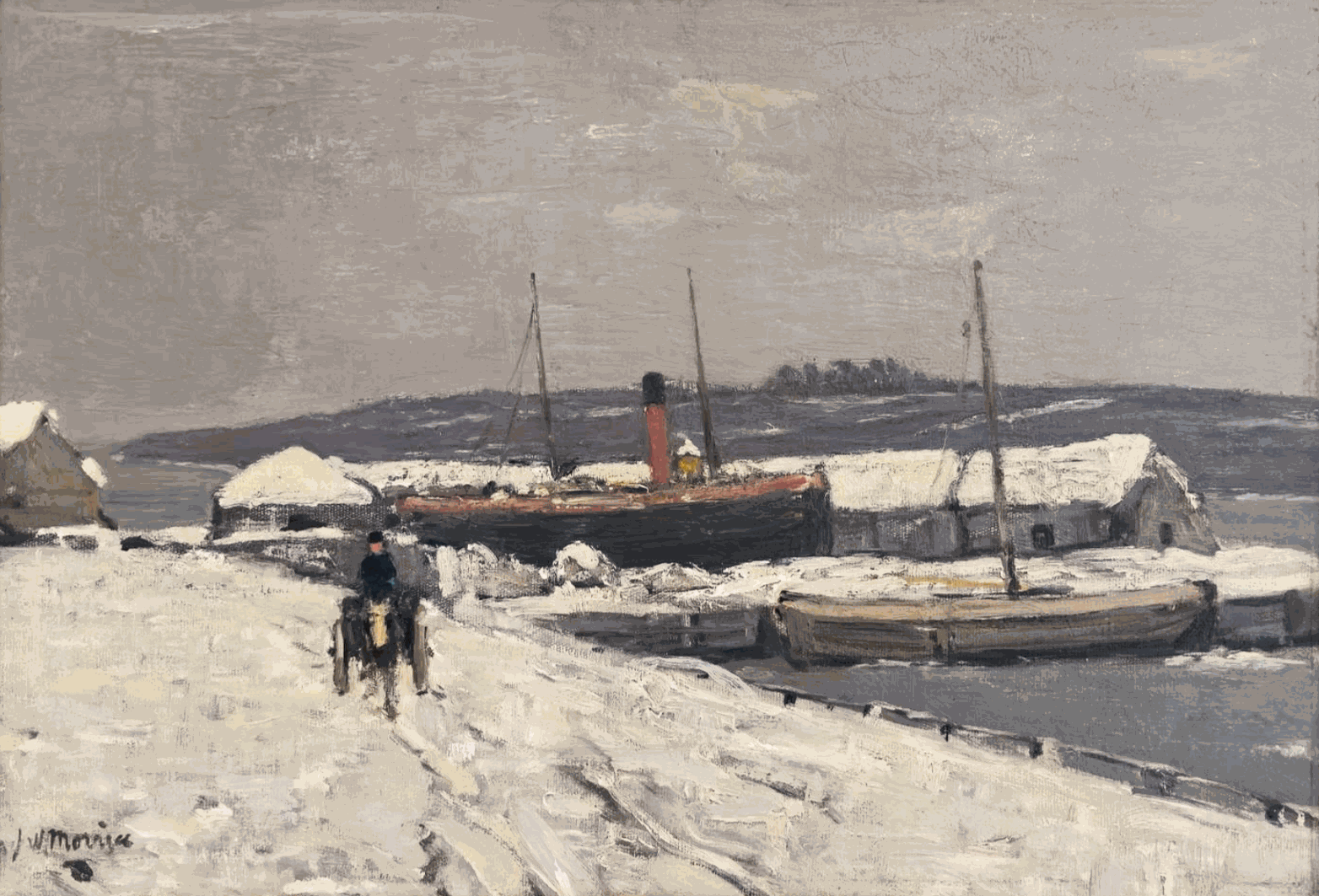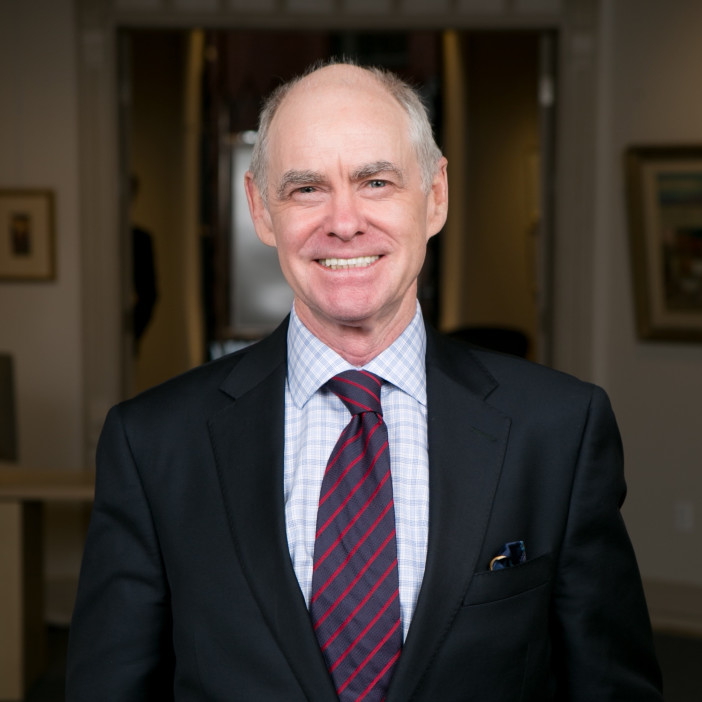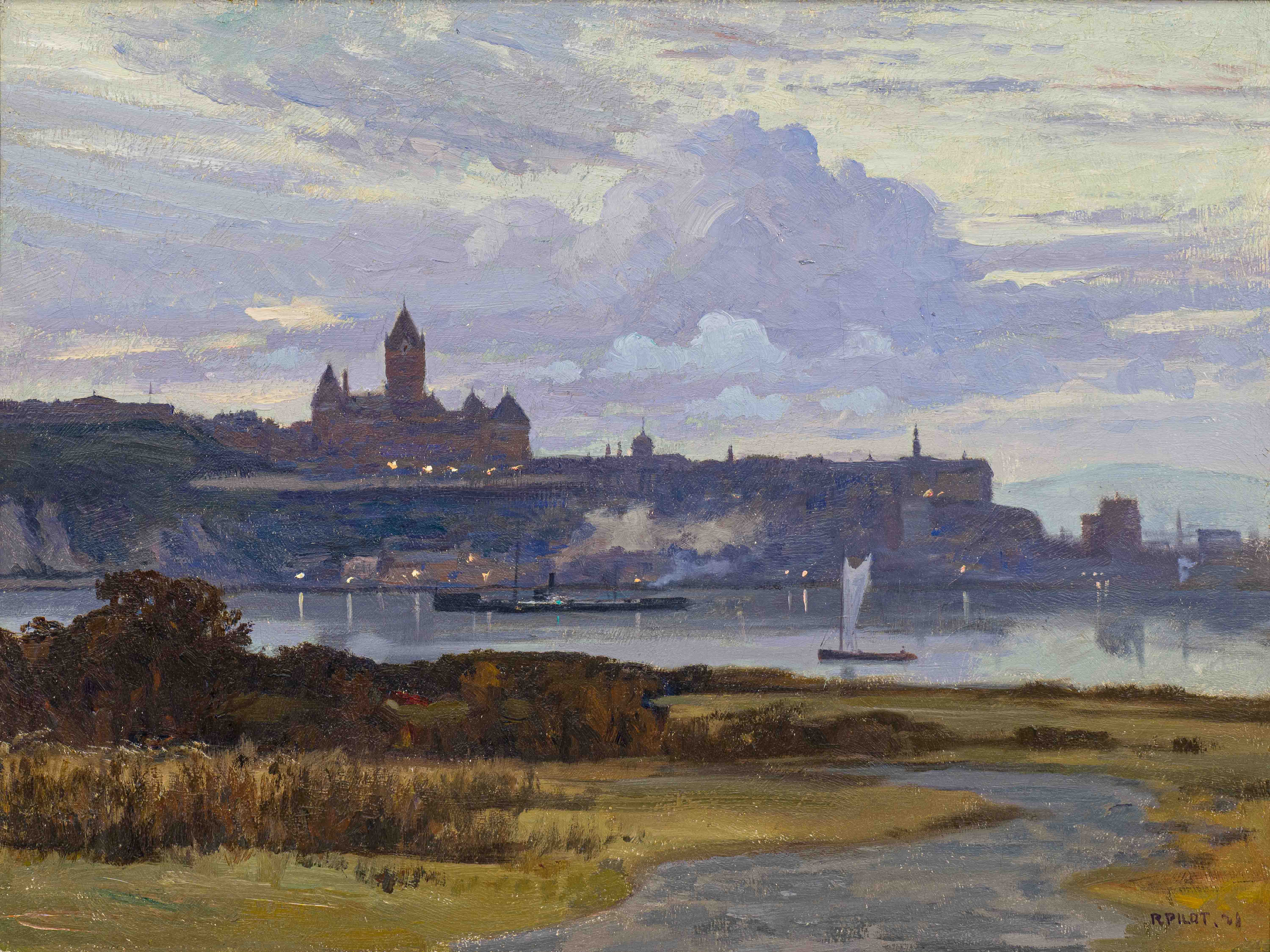River of Dreams, Impressionism on the St Lawrence

James Wilson Morrice 1865-1924, Wharf on the St. Lawrence. Private collection, Toronto, on exhibit at McMichael.
The magnificence of landscape abutting the St Lawrence River, particularly at Quebec and beyond, on both the north and south shores, has attracted not only artists but also affluent summer residents, largely Canadians but also Americans, who built summer homes for more than 150 years. eg. La Malbaie (Murray Bay), Métis, Tadoussac and Cacouna.
It is incredible to us that River of Dreams, Impressionism on the St Lawrence is the first exhibition hosted by an Ontario museum dedicated to these Quebec based Impressionists. With a more narrow focus than Canada and Impressionism organized and circulated by the National Gallery of Canada in 2019, River of Dreams, Impressionism on the St Lawrence complements the Gallery’s exhibition. Because of the concentration on the St. Lawrence River, this permitted the curators to show a larger number of superlative works by each artist on the one theme. Visitors are to be cautioned to conclude that the finest accomplishments by these artists are confined to this exceptional body of work (e.g. Maurice Cullen was to discover his Giverny in the Laurentians on the Caché, Devil’s and North rivers).
Professor Laurier Lacroix’s study of the original art purchases for the Musée national des beaux-arts du Québec is of great interest. The foundation of the museum’s collection is rooted in their initial purchases of 6 paintings made at the Art Association of Montreal’s 1920 Spring Exhibition, years before the museum was built. In preparation for a provincial museum and a mandate to put together a collection that is representative or descriptive of a national identity of Quebec under the supervision of The Honorable Athanase David, the committee purchased one each by Maurice Cullen (a Newfoundlander), Alice Des Clayes (a Scot), John Young Johnstone, Suzor-Coté, Clarence Gagnon and Albert Robinson (a Hamiltonian). It is interesting to note that the beginnings of this identity in oil paintings were exclusively winter scenes and only one by a French Canadian. (See Laurier Lacroix, "La collection comme temps de la Nation : les premières acquisitions du Musée de la province de Québec en 1920," Les Cahiers des dix 62 (2008): 123–151. https://doi.org/10.7202/038123ar)
The highlights for us would be too numerous to mention, including a number of works we have sold over the 75 years our family has been selling fine art. Marvel at Pilot’s Twilight, Lévis of 1933, his RCA diploma work and Cullen’s Anse-des-Mères, 1904 a triumph of many by the master but of a scale he rarely painted. It is irresistible to avoid signaling J. W. Morrice’s The Barber Shop, Clarence A Gagnon’s The Red Sleigh, Suzor Coté’s Magog River, a sketch of which we have in our family. Then there is Ozias Leduc’s Les foins (The Hayfield),1901 previously owned by Mr & Mrs Paul Labranche, close friends of my parents and then sold by Walter Klinkhoff Gallery to Fred & Beverly Schaeffer and a painting we recently acquired for a client who is building a genuinely first tier collection. John Geoghegan requested the loan from our gallery of Afterglow, 1913, a truly monumental and beautiful composition by William Brymner. The best of Brymner, this one with a sense of melancholy over the “back river”, is deserving company with the masters of Impressionism in Canada (Brymner was the bridge between the old and the new way of thinking in paint for countless talents who studied with him in his 30 year + teaching career). It is a treat to see Henrietta Mabel May’s Knitting, a work Alan Klinkhoff Gallery sold only a few years ago. It is a painting that glows in painterly terms of impressionism (its brilliance is slightly muddied with the curatorial speculation that these women are 1. knitting socks 2. that they are doing so for soldiers at the front 3. that this is a public display of patriotism. 4. that this has something to do with productivity, efficiency and “standardization”, supervisors etc.). Hey, it’s a sewing bee!
The surprises for many visitors will be the strength and quantity by Maurice Cullen and Robert Pilot on exhibit. In my career spanning almost a half century, I am certain that I have never seen so many outstanding Robert Pilot and Maurice Cullen paintings together on any one museum’s walls. The Alice Des Clayes must be cited as a welcome surprise because it is a painting of great standing, holding itself well among giants of the period, and a work by an artist with whom few today are familiar.
Robert W. Pilot, RCA, NA, 1898-1967, Early Evening, Québec, 1928. Alan Klinkhoff Gallery, not on exhibit.
With an exhibition of a quality that is described almost exclusively in superlatives one is hesitant to note the limited representation of work by Albert Robinson. His paintings shine in the context of Canadian impressionism in the company of fellow masters. His favourite painting place was along the St Lawrence River.
Frederick W. Hutchison remains very much “uninvited” in the canon of Canadian art. His paintings would have served as a fine complement to the exhibition. The magic of Hutchison's finest paintings is that they are of summer light, painted alongside his good friend and painting companion, Clarence Gagnon in Baie St Paul. Hutchison, a Montrealer, a member of the Royal Canadian Academy of the Arts, the National Academy of Design in New York, and President of NYC’s Salmagundi Club, would have been a welcome and appropriate discovery for many in River of Dreams, Impressionism on the St Lawrence.
Continually amazed, even shocked, that no Ontario museum has ever previously grouped these Quebec based icons of Canadian art and Impressionism in an exhibition, I ask myself why that is. Had these artists painted a geography west of Kingston, even as close by as Toronto, Algoma & Algonquin Park to capture the winter and autumn with a comparable tapestry of light, atmosphere and colour as they did back “home” in Quebec province, one might justifiably speculate that their recognition and admiration would be greater.
In conclusion, River of Dreams, Impressionism on the St Lawrence is not to be missed.
Thank you McMichael, Sarah Milroy, Anne-Marie Bouchard, John Geoghegan & team.















